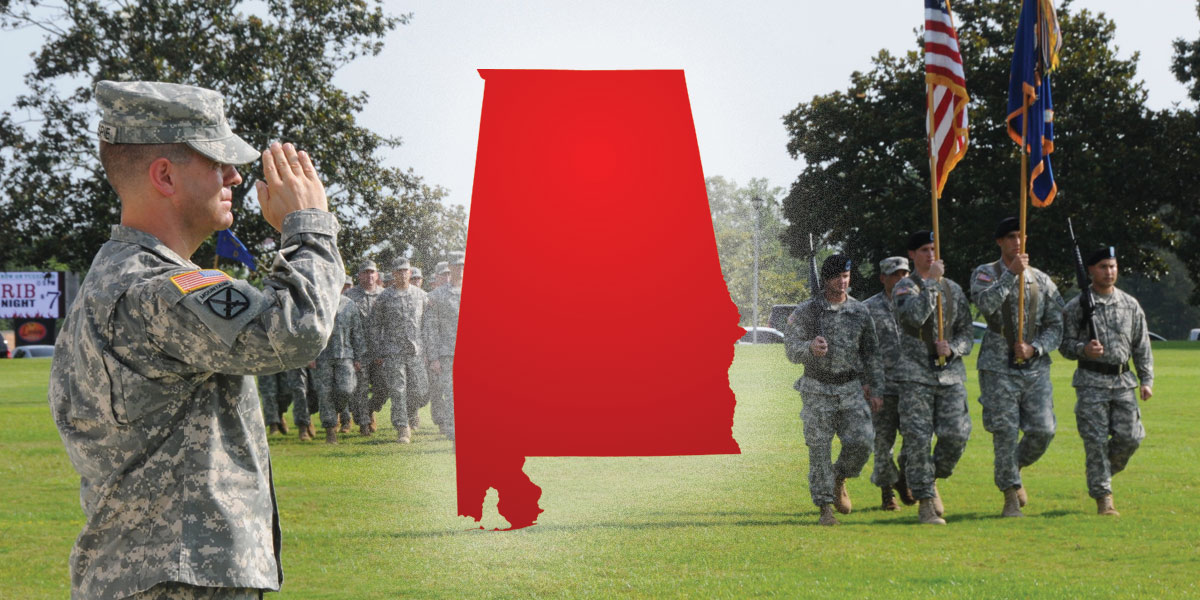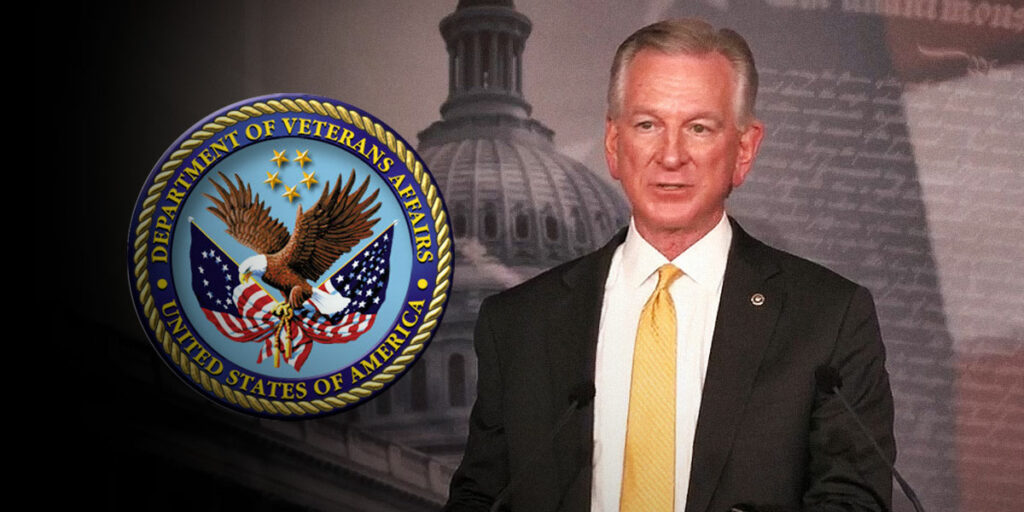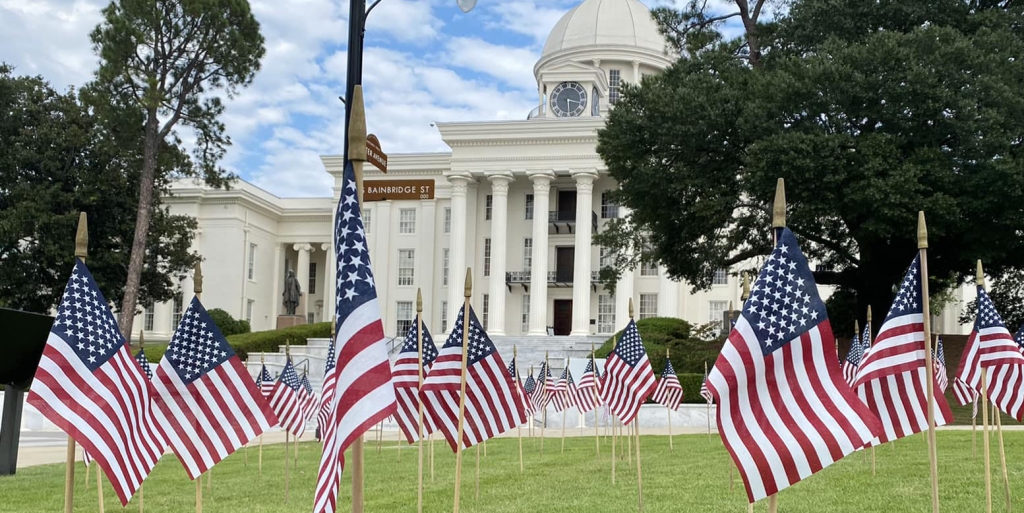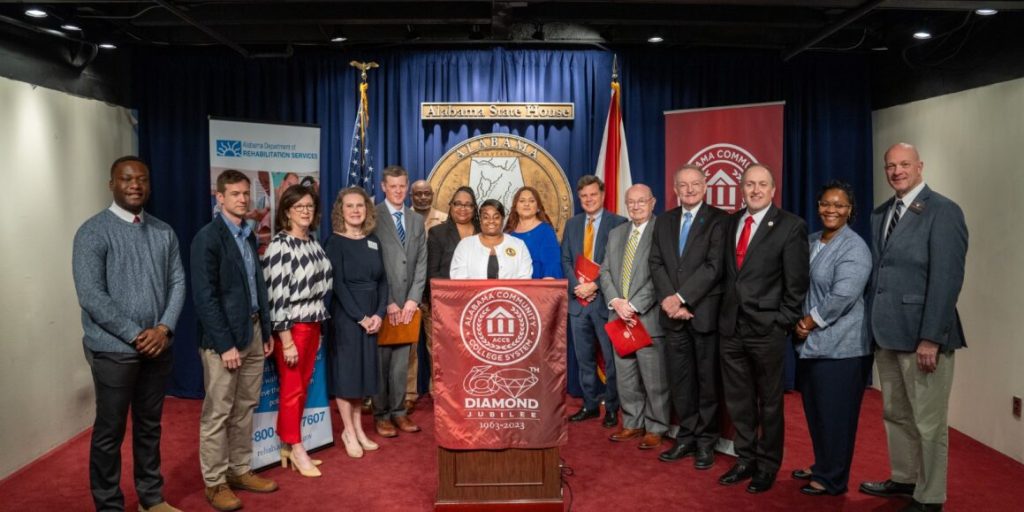The Alabama Council of Chapters of the Military Officers Association of America applaud Alabama Representative Chip Brown for introducing the Veterans Access-to-Care Bill (HB197) in the House and Alabama Senator Andrew Jones for introducing the bill in the Senate (SB135) and urge the Alabama State Legislature to enact this much-needed bill as quickly as possible.
We are especially appreciative to all of the Veterans in the Legislature who signed on as co-sponsors of the vital legislation.
The Veterans Access-to-Care bill authorizes the Alabama Department of Veterans Affairs to establish and operate a statewide integrated health care system for Alabama Veterans and their immediate families.
This state-run system is desperately needed because of the health care crisis facing the state’s nearly 400,000 Veterans and the inability of existing systems to address the needs of Veterans.
Every year since 2012, Alabama has led the nation in opioid prescriptions on a per capita basis. Opioid overdoses have increased nearly every year in Alabama since 2015, despite the Alabama Department of Mental Health’s spending $40 million per year on the Alabama Opioid Overdose and Addiction Council—which allotted no money for the specific care of Veterans or their families.
Unfortunately, many Veterans turn to opioids and other substances to deal with physical pain, emotional pain, and trauma, and studies have shown a clear link between opioid use and suicide by Veterans. Between 2010 and 2019, opioid overdoses among Veterans in Alabama increased 93.4%.
Retired Major General Mike Sumrall, former Adjutant General of the Alabama National Guard, said, “Suicide rates among Veterans are as much as twice those of non-Veterans. Veterans account for a little less than 10% of the state’s population, but Veteran suicides account for 18% of the suicides in the state. The tragic truth is that an Alabama Veteran takes his or her own life every 2.4 days. We owe it to our Veterans to provide them with better access to health care, including mental health care. This bill will go a long way to doing that by significantly shortening wait times for appointments and by providing peer-to-peer, culturally-competent programs that are specially tailored for Veterans, which no other health care provider in the state is currently doing.”
The federal VA medical centers and outpatient clinics are overwhelmed. The majority of VA clinics in Alabama routinely fail to meet the mandated minimal standard of providing an appointment within 20 days, and wait times at VA health care facilities in the state range from as long as 64 days for a mental health appointment to as long as 93 days for a primary care appointment.
There is precedent for the Alabama Department of Veterans Affairs to operate multiple health care facilities: it currently runs four long-term health care facilities (State Veterans Homes) in Alabama, with a fifth nearly completed.
As envisioned, the Department would establish between four and six residential health care facilities around the state, supported by as many as 25 outpatient clinics to be co-located or located adjacent the Department’s Veterans Service Offices, thus not only providing readily accessible health care but creating good paying jobs for health care providers, counselors, and staff throughout the state.
By implementing an integrated health care system designed to address the specific needs of Veterans, the Alabama Department of Veterans Affairs can successfully deliver primary care, mental health care and other life-saving services to thousands of Veterans and family members each year while providing relief to the overburdened federal VA health care system.
The Alabama Council of Chapters of the Military Officers Association of America urges the Alabama State Legislature to act urgently in passing the Veterans Access-to-Care bill on behalf of Alabama’s nearly 400,000 Veterans and their families, which, all told, make up nearly 25% of the state’s population.
The Alabama Council of Chapters is an affiliate of the Military Officers Association of America. MOAA and its affiliated chapters and councils are nonpartisan.













